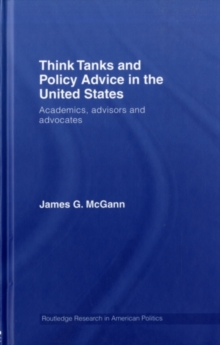
The Arab Lobby and US Foreign Policy : The Two-State Solution PDF
by Khalil Marrar
Part of the Routledge Research in American Politics series
Description
The US foreign policy stance on Israel-Palestine has shifted considerably in recent years, from a position of "Israel only" to one which embraces both Israel and Palestine in a call for peace. This volume assesses why the US stance has evolved in the way that it has, concluding that while international factors cannot be overlooked, developments within the United States itself are also crucial.
After years of vacillating on Palestinian national aspirations, the majority of Americans, the author notes, have come to favor the establishment of an independent Palestinian state on the West Bank and the Gaza strip. Considering what accounts for changes in US policy on Israel-Palestine, this volume:
- delivers a thorough assessment of the role of international and domestic factors in shaping US policy in this area
- considers how US policy has evolved from the Camp David negotiations of the 1970s up to the occupation of Iraq in the mid 2000s
- explores the significance of American public opinion and the pro-Israel and Arab lobbies in the evolution of US policy
The Arab Lobby and US Foreign Policy will be of interest to students and scholars of Foreign Policy and Political Science, Current Affairs and American Studies.
Khalil M. Marrar is Professor at DePaul University, USA. He has served in editorial positions at the Arab Studies Quarterly and the Association of Arab-American University Graduates.
Information
-
Download - Immediately Available
- Format:PDF
- Pages:272 pages
- Publisher:Taylor and Francis
- Publication Date:17/10/2008
- Category:
- ISBN:9780203887394
Other Formats
- Hardback from £140.00
- EPUB from £46.79
- PDF from £46.79
- Paperback / softback from £51.99
Information
-
Download - Immediately Available
- Format:PDF
- Pages:272 pages
- Publisher:Taylor and Francis
- Publication Date:17/10/2008
- Category:
- ISBN:9780203887394







